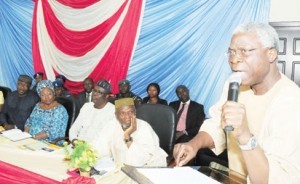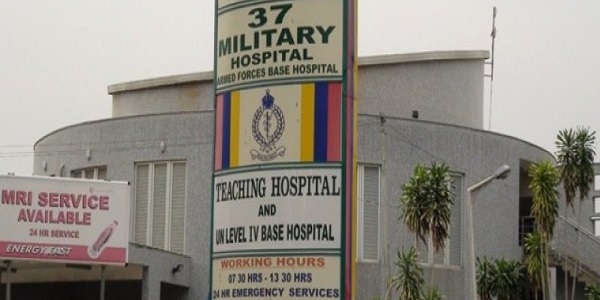
Call For State Of Emergency In Education Sector
Eminent Nigerian professors in diaspora who are making waves in the education sector were in stormed Ekiti State for two weeks to impact knowledge and chart the way forward for the ailing education sector.Delivering the keynote address at the official launch of Ikogosi Graduate Summer School (IGSS) at Ikogosi, Ekiti State, Professor Niyi Osundare who threw his weight behind Professor Wole Soyinka’s call for a declaration of a state of emergency in the education sector said, there is a lot of truth in what he said. “Let us dismantle it and rebuild again. It may not be that drastic as there are a lot of rooms for improvement.”
He posited that the setback in Nigeria’s education sector was due to government’s inability for many years to rectify it, noting that it is always easy to destroy but difficult to build. According to him, we are reaping the result of our education which went backward for two decades.
The poet said that in declaring a state of emergency, we have to look at the various institutions in the country to know those that qualify and those that parade themselves as universities in Nigeria. “How many are qualified as universities, how many are there to teach and how many were established for the purpose of profit and ego?”
He pointed out that the 129 universities in Nigeria are too many as many of them lack the qualities of a university. The solution according to him, is not in the numbers of students who gain admission into the universities but in quality of education they receive. “Setting up mushroom universities is going to compound the problems,” he added.
Osundare who urged the Federal Government to revalidate and strengthen the existing universities, disclosed that expanding the existing ones to accommodate the teeming youths seeking admission will place the sector in a better position.
To revamp the sector, he added, there must be a change in our attitude saying success or failure come from inside. The professor who believes money is not our problem in Nigeria but how to judiciously spend it, stated that money generated in this country can fix the sector if our government set their priority right. “Government has to reorganise its priority. There was a time Nigeria was committing 20 per cent of its budget to education but later went back to 1.8 per cent,” he said.
He, however, maintained that the Federal Ministry of Education should know where to commit the allocation given to them because there are lots of things to spend the money on.
His words, “When you have your allocation, you should know how to set your priority right. Why don’t you commit 25 per cent or 30 per cent of this money to post-graduate education in major regions in Nigeria. Spend part of it on staff training and development, while some of the fund can go for equipping the laboratories.”
Having lived in Nigeria for years before relocating to UK, he disclosed that the physical environment of our university is not conducive for learning adding that lecture rooms are too close to students’ union building. “How can somebody think in such kind of place,” he queried.
He also lamented that many of our students have no ambition, therefore lack the drive to pay the price for success. The Professor of Literature who concurred that learning is difficult said personal discipline on the part of students will help them, adding; “that is part of the price to pay.” After each course with a professor, students should ask themselves, what they have gained, what they have learnt and what can they pass on to the future students?
Meanwhile, addressing the crowd at the launch, Governor Kayode Fayemi stated that the innovation of IGSSwas to encourage and provide scholarly exchanges and interaction between post-graduate students, scholars in Nigeria and Nigerian scholars abroad. He said it is to provide external mentoring to post-graduate students in Nigeria, to train them in the art of writing proposals for graduate programmes, research funding and how to publish in international journals.
He said; “We hope to create and nurture relationships amongst Nigerian scholars in the diaspora, Nigerian scholars at home and post-graduate students in Nigeria.” Fayemi explained that the IGSS will adopt inter-disciplinary, comparative and highly interactive approaches to training participants adding, that the IGSS is designed to enrich and expand the training of post-graduate students in Nigeria, to provide expansive and great scholarly opportunities for post-graduate students, to train post-graduate students in the processes and culture of research in the global age.
The programme, he pointed out, will deepen and expand the horizon of post-graduate students in Nigeria thereby introducing post-graduate students to world class research and scholarship.
Recalling the conceptualisation of the idea, Dr Fayemi said; “The proponents of the IGSS thought that if our education system was to become competitive on the global scale as quickly as possible while implementing necessary reforms, we have to urgently seek out ways to redeem the colossal loss of human capital. That is why some of our brightest minds in the academia leave shores.” He disclosed that the phenomenon popularly called brain drain was as a result of decades of military dictatorship and bad governance which almost paralyzed our education system.
According to him, the programme is designed as a fully residential intensive training school and will facilitate scholarly, experiential and practical insight into the dynamics of knowledge production in 21st Century Nigeria.
Fayemi who urged the 50 pioneer students of the IGSS to make the best of the opportunity, stated that his administration has invested huge resources into the project to ensure that all 50 successful candidates are able to participate in the IGSS free of charge so as to forestall exclusion of anybody on the basis of finances.




